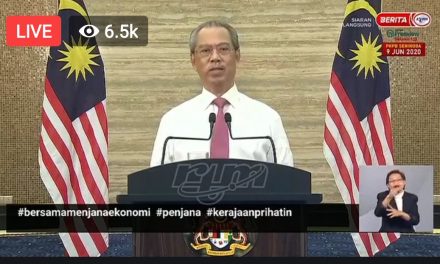KUALA LUMPUR | The government’s move to allocate RM9 billion to reduce unemployment rates under the National Economic Recovery Plan (Penjana) will help revive the country’s employment sector which is severely affected by Covid-19 pandemic.
Malaysian Employers Federation (MEF) executive director Datuk Shamsuddin Bardan said that employers, through the injection of funds, could utilise it by providing training and retraining to equip workers with information technology skills to cope with the new normal practices in line with the Fourth Industrial Revolution (IR 4.0).
“Nowadays many are working online and working from home, so these skills will enable workers to be more efficient. Hence, methods or ways to increase the capacity of employers and workers to do the same should also be considered.
“It also raised several issues, for example, in cyber security issues, many of us are unfamiliar with the technology, such as how to set up Skype, Zoom, and video conferencing applications,” he told Bernama today.
Therefore, he said, employers should seize the opportunity from the fund’s distribution which will benefit three million workers, by providing effective skills training so that they can adapt to new industries, thus enriching their lives.
The Department of Statistics Malaysia on May 14, said that the country’s unemployment rate is projected to increase to 5.5 per cent or more than 860,000 people, while the economy is also expected to shrink in the second quarter of this year following the ongoing fight against Covid-19.
In the meantime, he said, the government’s initiative to introduce a grant of up to RM50 million for gig economy would help reduce the anxiety among youth, especially those at risk of losing their jobs, new graduates and young entrepreneurs involved in small and medium enterprises (SMEs).
“This means that the government prioritises the needs of the gig economy workers such as food delivery to be protected under the Employees Provident Fund so that they will have pension savings for retirement needs,” he said.
Commenting on the extension of the wage subsidy programme to another three months, he said the effort was aimed at reducing cash flow pressure on SMEs.
“What employers need at the moment is the lifeline for the cash flow, we face a lot of cash flow problems as revenue is low but there are many fixed costs, especially in terms of payroll and building rentals, which is part of the business cost,” he said.
However, he said, the period may need to be extended to another six to nine months with a larger allocation similar to Singapore as Covid-19 effect could be felt lot longer.
Meanwhile, Malaysian Trade Union Congress (MTUC) president Datuk Abdul Halim Mansor described the allocation demonstrated the government’s concern in helping workers and employers, however, its implementation and distribution should be carried out in a transparent manner.
“The Prime Minister’s announcement demonstrates that he is adhering to the principle that no one will be excluded from accepting the government-provided package, but its implementation and distribution need to be reviewed further.
“We are worried if it will be similar to the previous stimulus package, it may fail to ensure workers are protected,” he said.
Economist from Universiti Tun Abdul Razak (Unirazak) Prof Emeritus Dr Barjoyai Bardai said the injection of funds would create a multiplier effect on the economy in the form of spending.
The government was trying to restore the country’s economy by helping the unemployed and employers with less than 200 workers, he said.
He said in the long run, the government needed to develop stronger programmes specifically for macro and SMEs for transition to digital technology, and the ‘Internet of Things’ in line with IR 4.0.
Yesterday, Muhyiddin announced PENJANA, themed ‘Building the Economy Together’, comprising 40 initiatives worth RM35 billion, aimed at empowering the people, boosting business and stimulating the economy of which RM10 billion was direct fiscal injection.









